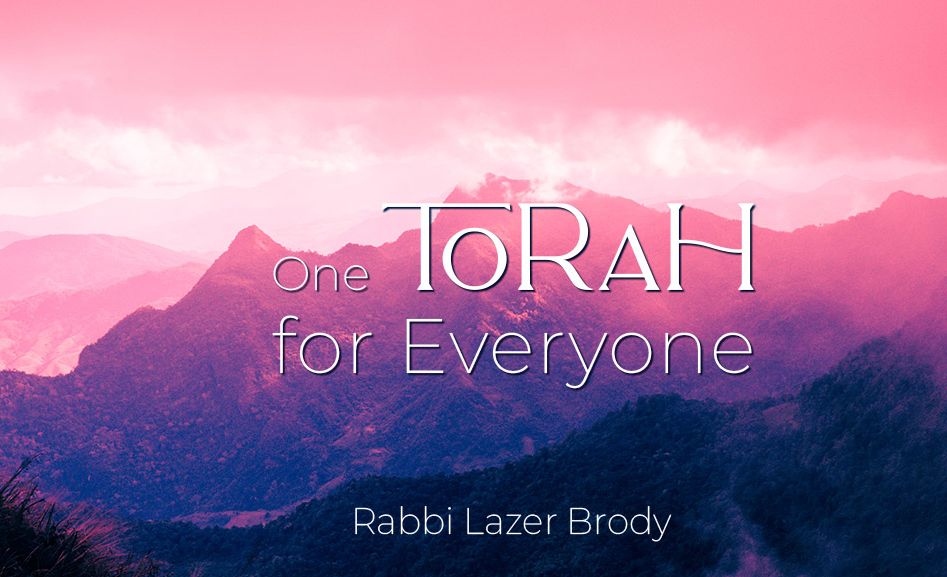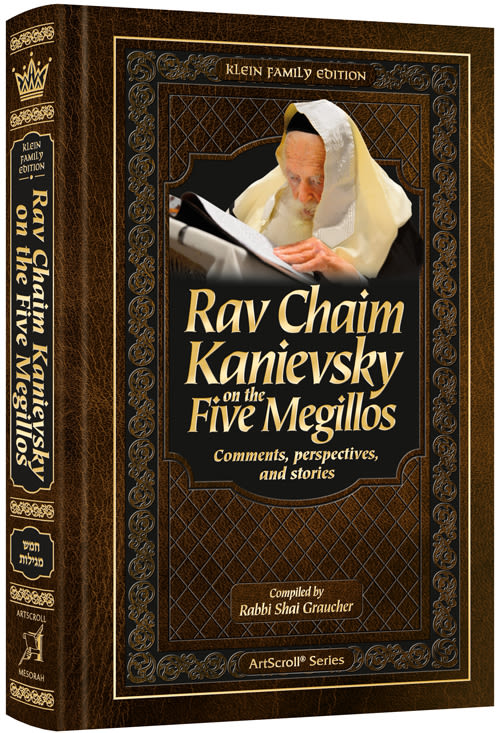
Shavuot
Having seen and heard the glory of Hashem with their own eyes and ears on the very first Shavuot, when Israel received the Torah from Hashem...

Having seen and heard the glory of Hashem with their own eyes and ears on the very first Shavuot, when Israel received the Torah from Hashem, the Children of Israel trembled with fear.
“And the people stood from afar and Moshe (Moses) approached the thick cloud where Hashem was” (Shemot 20:18).
Having seen and heard the glory of Hashem with their own eyes and ears on the very first Shavuot, when Israel received the Torah from Hashem, the Children of Israel trembled with fear. The Midrash tells us that the angels had to force the souls back into the Jewish bodies; otherwise, the people couldn’t have continued to maintain their physical existence in the presence of such super-high-voltage holiness.
The Torah is a blueprint for life. Therefore, the above passage’s description of Shavuot and the receiving of Torah carries two particular intrinsic messages that teach an important lesson about the service of Hashem. Rebbe Nachman of Breslev (Likutei Moharan I:116) writes:
“The spiritual forces of severe judgment denounce one who – by virtue of his own deeds – is not worthy of earning proximity to Hashem, and refuse to allow him to connect to a genuine tzaddik and to the path of truth. Hashem loves justice; therefore, He must seemingly agree to prevent that person from reaching the path of life, in light of that person’s bad deeds according to justice, for Hashem loves justice. But in truth, Hashem, blessed be He, loves Israel, and His love for Israel is more than His love of justice. So what does He do? Seemingly, He must consent to the demands of justice to disallow a person from reaching the truth, since the person has incurred sever judgment, for Hashem loves justice as already mentioned. But, in the essence of truth, despite a person’s past, Hashem desires that he come closer to Him, for He loves Israel more than He loves justice as mentioned above. Hashem therefore consents to enable obstacles to obstruct the person, but He His blessed Self conceals Himself within the obstacles. Anyone with spiritual awareness can find Hashem hiding within the obstacles themselves. In actuality – there are no obstacles at all, and a person can come closer to Hashem by way of the obstacles, for Hashem is concealed within the obstacles!”
In light of Rebbe Nachman’s amazing teachings, we can properly interpret the allusions of the passage at hand:
And the people stood from afar – in light of their past actions as slaves in Egypt that learned many bad influences from the Egyptians, the people – by exacting judgment – didn’t deserve to be rewarded with the proximity of Hashem. Today, this very same passage alludes to a person who desires to return to Hashem, but whose past deeds likely invoked a host of severe judgments. These people are pushed away, forced to stand “from afar”; many obstacles hinder their teshuva process, trying to discourage them. In actuality, Hashem is hiding within those obstacles waiting for the person to be courageous enough to overcome the obstacles. Hashem is close the entire time!
Moshe approached the thick cloud where Hashem was – “Moshe” is the person who wants to reach Hashem at all costs; he or she is therefore not afraid to approach the “thick clouds” – the obstacles – where Hashem is actually hiding!
With Hashem’s help, let’s try and clarify the Torah’s allusion and Rebbe Nachman’s lofty principle with the following parable:
A big brown honey bear was hungry. Looking everywhere for food, he found a few thistles, some dandelions, and a few tubers, yet he craved something more – honey! Honey was his absolute favorite, and he combed the woods and meadows searching for some.
By the stately white oaks, the bear only found acorns. “I’m not a squirrel,” he grumbled to himself. “I need the sustenance of something sweet – honey! Give me honey!!” By the conifers, he found some pine-nuts, but they had an aftertaste of turpentine. From the distance, his sensitive nose sensed an exquisite fragrance – it was the perfumed aroma of wildflower honey!
The bear hurried toward the scent. All of a sudden, a bee buzzed by his ear. Paying no attention to the little annoyance, he continued, not letting anything stop him. Another bee landed on his nose, and a third had the audacity to sting him in a most sensitive place. Before a long, the bear was engulfed in a cloud of irate bees.
The more the bees, the happier the bear was, for he knew that the beehives and honeycombs were close by. With singleness of purpose, he sustained the increased stinging, continuing in the direction of the intoxicating honey fragrance that was getting stronger by the moment. Never losing site of his objective, the bear reached a patch of wild lupines; there in tree at the edge of the meadow was his prized honeycomb! A hungry bear with a mouth full of honey never pays the slightest attention to any obstacle, not even hundreds of bee-stings!
Funny, but even a bear knows that the more the bees, the closer the honey. In other words, the greater the obstacles or spiritual resistance, the closer one is to Hashem and to His Torah.
On Shavuot, when Hashem gave the Torah to His people Israel, we’re accorded an annual opportunity to strengthen our bond with Hashem and with His Torah. On Shavuot night, the forces of severe judgment complain that we don’t deserve the Torah. What does Hashem do? He seemingly capitulates to the demands of justice, and makes us sleepy to prevent us from learning Torah.
If you would want to play checkers or gin rummy on Shavuot night, you wouldn’t feel sleepy. But, as soon as you open a Gemora or other holy book, your eyelids feel heavy. Just as the bees are close to the honey, the obstacle or fatigue is close to the Torah. By overcoming our sleepiness (which is actually Hashem hiding in the sleepiness), we seize a unique chance to enjoy the illumination of our renewed bond with Torah. Our love of Torah – the honey to our souls – gives us the power to stay awake all night and rededicate ourselves to learning Torah. May all of Israel overcome whatever obstacles that hinder their return to Hashem and His Torah this very year, amen.












Tell us what you think!
Thank you for your comment!
It will be published after approval by the Editor.